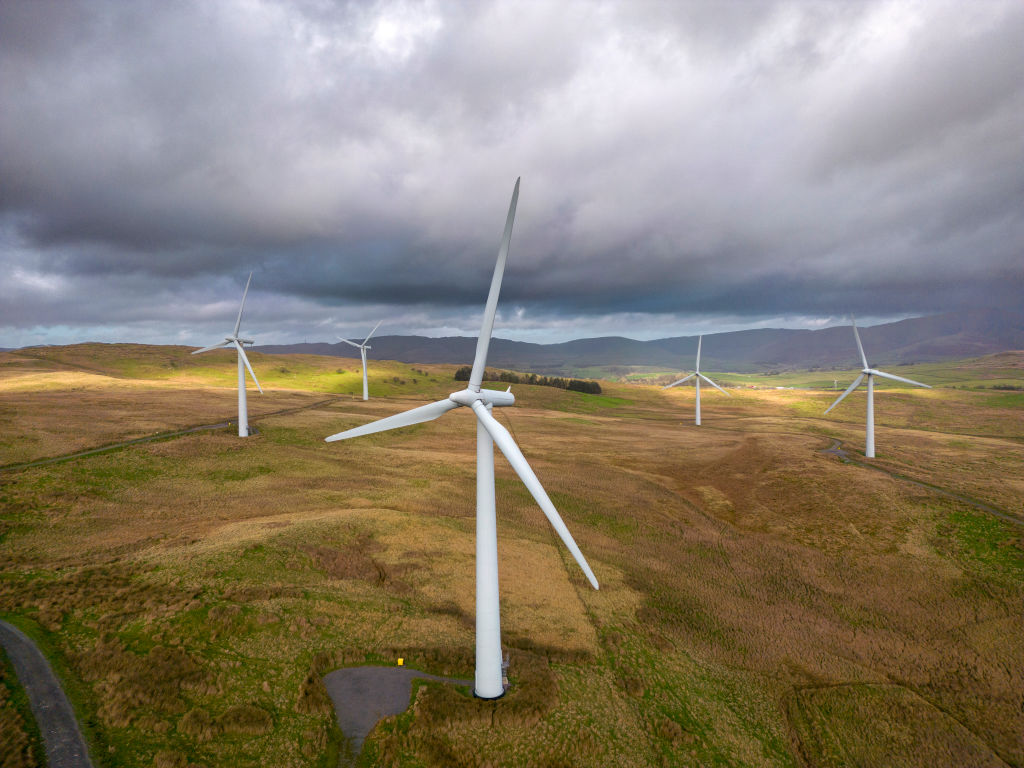Let’s be honest, American taxpayers are doing us a huge favour with green subsidies

US President Joe Biden might think playing a trade war with the EU over green subsidies is a good idea. For our part, the UK should stay out of it and reap the benefits, writes Harrison Griffiths
The United States and the EU are teetering on the edge of a major trade dispute as a result of Joe Biden’s landmark economic legislation, the Inflation Reduction Act.
Don’t be fooled by the name, far from tackling inflation, the legislation enacts a cornucopia of Democratic Party economic priorities, including subsidies for low and zero-carbon technologies.
The EU has taken particular umbrage with rules on electric car subsidies. They fear it will drive green business away from Europe. They also argue the law unfairly discriminates against European companies, because subsidies are contingent on production being US-based. This piece of legislation, one could argue, is little more than “America First” with a green tinge.
In response, the EU is considering relaxing its state aid subsidy-control rules to allow member countries to compete. Not to be left out, UK manufacturers and politicians have also raised alarm bells.
For the UK to join in would be a huge mistake. Attempting to reshore industry to the UK would be naïve and economically illiterate. Naïve because the UK could never hope to match US subsidies: its population is one fifth of the population of the States, and its economy is one sixth the size of America’s. Even Labour’s relatively ambitious “UK Green New Deal” investment pledge of £28bn before 2030 is a drop in the ocean compared to America’s almost £310bn splurge.
We have known since the days of classical economists like Adam Smith and David Ricardo that countries have comparative advantages. What this means is production is more efficient when we use the wealth created in the UK to purchase products made better elsewhere, rather than pursuing self-sufficiency.
According to Smith, “consumption is the sole end and purpose of all production”. He believed “the interest of the producer ought to be attended to only so far as it may be necessary for promoting that of the consumer”.
UK politicians would do well to pay more attention to Smith than electric car manufacturers begging for special favours and subsidies. Consumers, not producers, should be the priority when formulating economic policy – it should be they who pick winners and losers in the market.
Consumers’ interests would be served by making it as simple as possible to import US taxpayer-subsidised green technology, rather than embarking on another industrial strategy boondoggle.
Greater subsidies could also end up harming the fight against climate change. Current electric vehicle technology may present a great opportunity to reduce carbon emissions, but we cannot know what better innovations may arise in future. After all, the ‘dash for diesel” – the policy of subsidising diesel cars – ended up clogging the lungs of Londoners.
If the government wants to decarbonise, it should instead impose a carbon tax. Setting a constant price on each unit of carbon would reduce emissions and allow the market to determine the most efficient ways to decarbonise. Adopting this approach would control carbon externalities without the state embarking on new forms of protectionism.
The US government’s decision to subsidise its way to net zero is unfortunate for their economy and taxpayers, but this is out of our control. The government should take the win and allow cheap American green technology to pour into our market. American taxpayers are doing us a huge favour; we would be foolish to pass it up.
